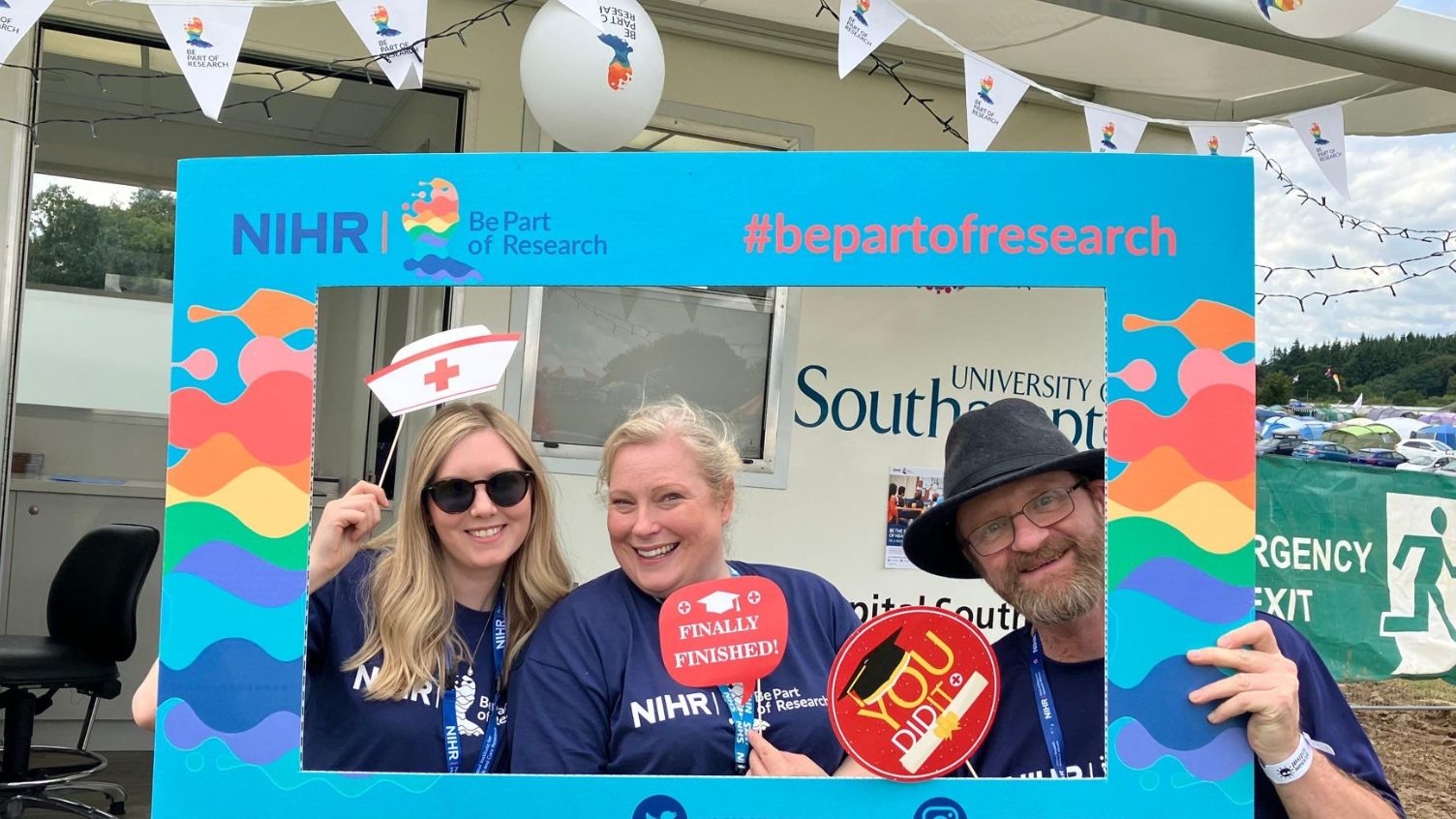A drive to improve and innovate inspired Frances Kirkham to turn her hand to research alongside her core medical training
- 9 September 2021
- 5 min read
After a career in PR and communications, Frances Kirkham retrained and qualified as a doctor five years ago. She is now undertaking her core medical training and was inspired to add research to her portfolio to improve patient care on a larger scale.
In Your Path in Research - a series that uncovers the research community across the National Institute for Health Research Clinical Research Network Kent, Surrey and Sussex region - we speak with Dr Frances Kirkham about her motivations, inspirations and the ups and downs of her first research project as Chief Investigator.
What does your current clinical role involve?
I'm currently doing a rotation in the Intensive Care Unit at University Hospitals Sussex NHS Foundation Trust as part of my core medical training. It has been a pretty intense gear shift as the medicine is so different to normal wards, as well as being emotionally draining on top of a pretty brutal rota. However, there is a lot of senior support from a really nice team, so I am never left to deal with anything on my own.
What is your current research project about?
I am working with colleagues at University Hospitals Sussex to create a decision-support tool aiming to reduce medication-related harm in older patients being discharged from hospital.
More than one in 10 people over the age of 65 are on eight or more medications - rising to one in four people over the age of 85. Mostly these medications are vital to helping people manage their conditions. However, unnecessary harm can occur when medication has been incorrectly prescribed or incorrectly taken by the patient. A 2018 study estimated one in three older people suffer medication-related harm within 30 days of hospital discharge.
It is vital we tackle the very real problem of older people taking too many medicines while simultaneously guarding against the risk of undertreating older people. Our study hopes to do this by analysing commonalities between patients to assess their risk of medication-related harm - once we know this risk, healthcare providers can provide additional support and monitoring for patients that need it.
Currently, we are conducting focus groups with patients and clinicians using data from a previous project (the PRIME study) that allows us to classify patients according to their risk of harm. Patients can be identified as high risk based on a number of routinely-measured parameters and demographic factors, which will feed into our tool. Once we have developed and tweaked it based on feedback from patients, carers and healthcare professionals, we will pilot it locally and hopefully roll it out nationally.
What were you doing before you became a researcher?
I've been an academic doctor since qualifying five years ago. Originally, I did an English degree then worked in PR, communications and in the charity sector for many years before eventually going back to do graduate medicine. So it has been a slightly unusual path.
What inspired you to become a researcher?
I love clinical work and doing my best to make a difference to the individual patients I work with. However, research gives me the feeling that I am helping on a macrocosmic level, aiming to change the way we do things, improve our understanding and innovate. Research helps me get away from the daily grind and focus on what we can change for the better.
What do you enjoy most about research?
It uses a completely different set of skills to my clinical work. I like being able to dedicate a lot of time to a project, getting immersed in a topic and feeling I really understand it. I get to work with incredibly talented people from diverse spheres and learn from their expertise. I enjoy the change of pace from the hectic on-call rota, having the opportunity to be creative, engage my writing skills and even spending time crunching numbers.
What do you find most challenging about research?
I sometimes find the slower pace of the research world a bit frustrating. Having to wait weeks for responses, for example from committees, when you just want to get on with things can be a challenge. And inevitably at other times there feels to be far too much to do which can be overwhelming - you wish you could space out the workload more evenly. So it takes a lot of organisation to ensure there is always something ticking over even when certain projects are waiting for things beyond your control.
What are your career ambitions?
I would love to go on to do a PhD and become a clinical lecturer. I have always wanted to blend my research pursuits along with a clinical career as I don't want to leave either behind.
What are your interests outside of work?
Well, I have a one-year old so I spend a lot of time making animal noises and offering teddy bears imaginary cups of tea. Beyond that, I'm an ardent Rochdale fan, an amateur cake decorator and try to spend as much time listening to Bob Dylan as I am allowed before the Wheels on the Bus is demanded again.
What advice would you give to others considering a career in research?
I think sometimes people may be tempted to go into research because they think it gives them a competitive edge, approaching it as an individualist activity to further themselves. I would always warn against this, as research is fundamentally a team activity which needs team players. My advice would be to work collaboratively, learn from the many, many talented people around you and focus on the project and what you are trying to achieve as a group. If you work with more collaborators, you will be invited to join more projects, make wider networks and have more choice and diversity to your portfolio.


